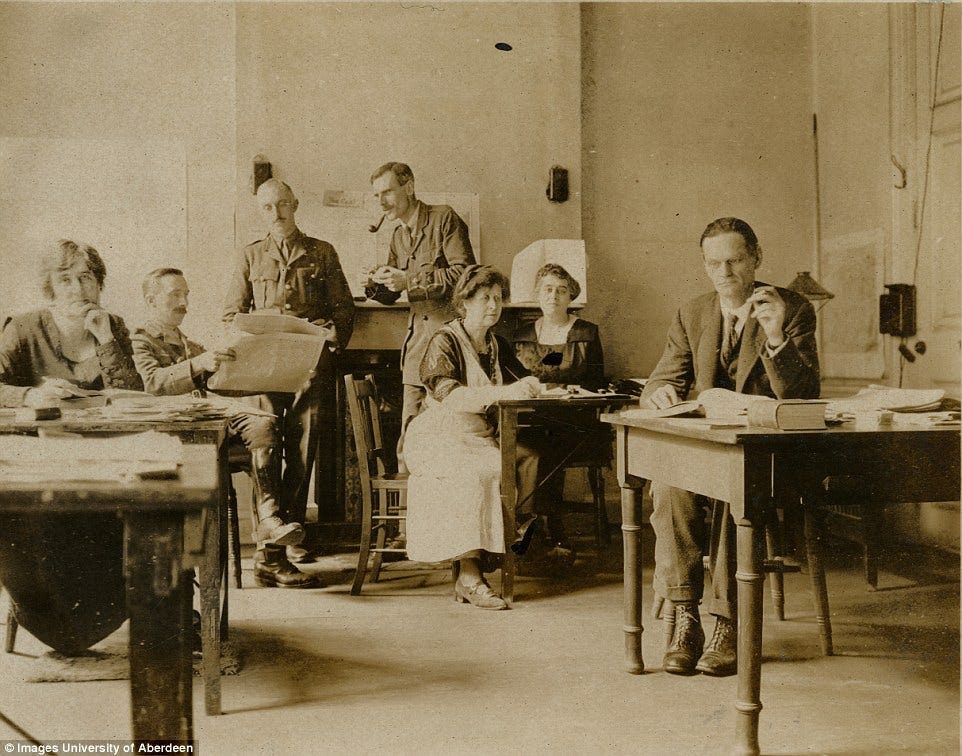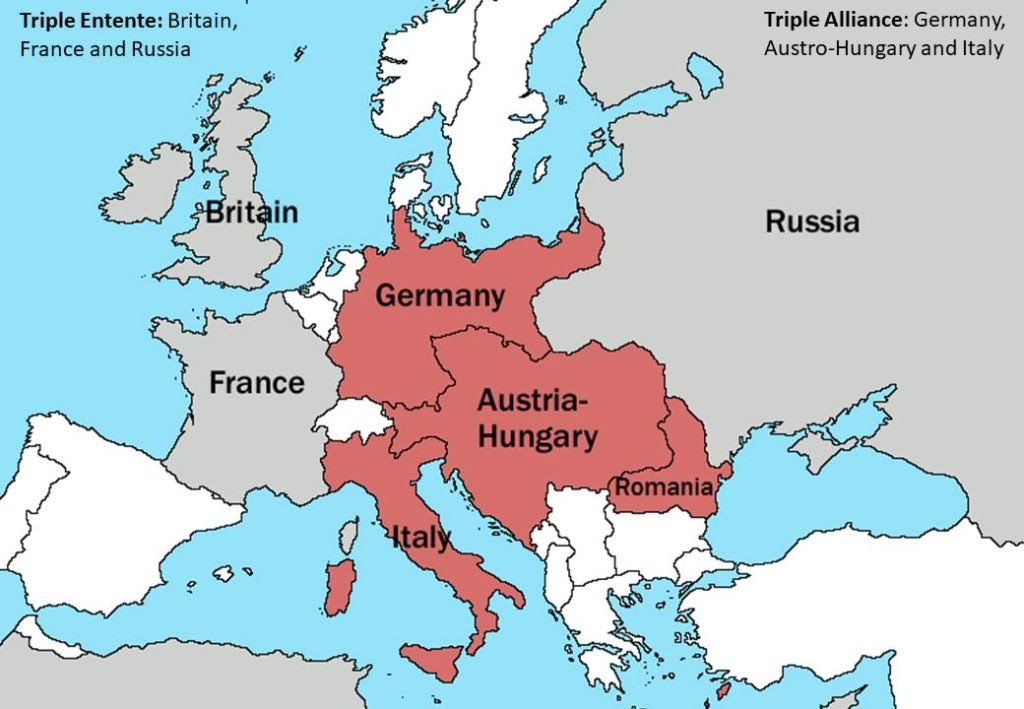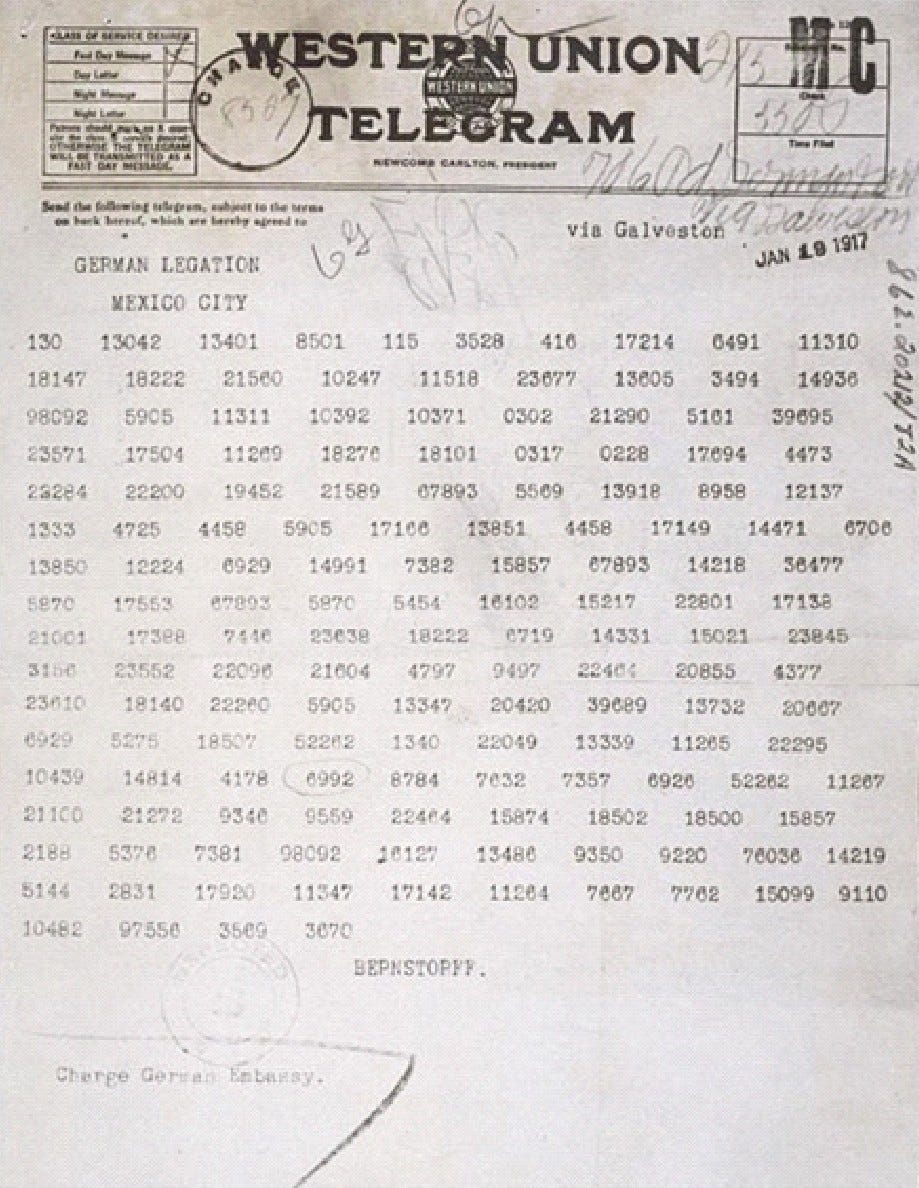‘We toss the coin, but it is the LORD who controls its decision.’ - Proverbs 16:33
Of all the questions people ask me, ‘How can I determine God’s will for my life?’ is the most prevalent.
People often view God’s will as something hidden and needing to be discovered.
Yet, the Bible teaches the opposite.
God’s will is discovered by reflecting on your past.
World War I As An Example
You may have never considered the question, ‘Why did the United States enter World War One on the side of Britain, France, and Russia, not Germany, Austro-Hungary, and Italy?’
I’ve often asked that question because all eight of my great-grandfathers, and many of my great uncles, fought in World War I, some of whom died or were maimed on the battlefields of Europe.
The U.S.A.’s decision to fight alongside Great Britain, France, and Russia against Germany, Austria-Hungary, and Italy is not as straightforward as one might think.
The Allied Powers and the Central Powers were very similar:
They shared cultural ties: Great Britain, France, Germany, and Austria-Hungary all shared deep historical and cultural connections with the Central Powers, with influences in art, literature, and Christian philosophy that crossed borders.
They each had significant economic relationships: The U.S. had substantial trade relationships with both sides, exporting goods to Great Britain and France while also engaging in commerce with Germany and Austria before the war.
They both held to Constitutional and Christian values: Great Britain and France were Constitutional monarchies with a Christian majority in the population, appealing to U.S. ideals. Similarly, Germany and Austria-Hungary maintained constitutional parliaments and robust protestant and Catholic churches throughout the nations, offering similar ideals to those of the U.S.
They each had immigrant populations in the US: Large numbers of German and Austro-Hungarian immigrants lived in the U.S., creating sympathy for the Central Powers. British and French cultural ties also influenced opinion in the US.
They were both strong military powers: Both alliances boasted formidable military strength, with Great Britain and France dominant at sea and Germany and Austria-Hungary strong on land, making the U.S. wary of choosing a side in a balanced conflict.
Woodrow Wilson won his 1916 Presidential election on a campaign slogan:
‘He Has Kept Us Out of War!’
Yet, on April 6, 1917, just a month after being inaugurated, President Wilson led Congress to declare war on the Central Powers (Germany, Austria-Hungary, and Italy).
ROOM 40 and World War I

In January 1917, during a war being fought in Europe and not yet by the United States, German Foreign Secretary Arthur Zimmermann sent a secret telegram to the German ambassador in Mexico, Heinrich von Eckardt. The message, intercepted and decoded by British intelligence, proposed a military alliance between Germany and Mexico if the United States were to enter the war against Germany.
Germany promised Mexico they could have Texas, New Mexico, and Arizona from the U.S. after Germany’s victory, a provocative offer rooted in the tensions lingering from the Mexican-American War (1846-1848) and subsequent border disputes.
Sent via encrypted cables through neutral channels, the telegram also announced German plans to resume unrestricted submarine warfare in the Atlantic against commercial shipping, believing supplies sent by commercial interests in America were helping Britain and France in the war effort.
The men and women in ROOM 40 of British Intelligence cracked the German codes and intercepted the Zimmermann Telegram, sharing it with the U.S. government on February 24, 1917. President Woodrow Wilson, initially committed to neutrality, faced mounting pressure as the telegram’s contents were leaked to the press and published on March 1, 1917.

The American public, already frustrated by German U-boat attacks on merchant and passenger ships, reacted with outrage to the perceived threat of a German-Mexican alliance targeting U.S. territory. The telegram’s bold proposal inflamed anti-German sentiment, shifting public opinion away from isolationism and toward support for intervention, as newspapers and political leaders highlighted the direct challenge to American sovereignty and security.
On April 2, 1917, President Wilson addressed Congress, citing the telegram alongside Germany’s unrestricted submarine warfare as evidence of hostile intent, and requested a declaration of war.
Congress approved the declaration on April 6, 1917, officially bringing the U.S. into the conflict on the side of the Allies. The telegram not only undermined Germany’s diplomatic credibility but also galvanized American resolve, accelerating the shift from neutrality to active participation, ultimately bolstering the Allied effort with U.S. troops, resources, and industrial might in the war’s final stages.
My ancestors died fighting the Central Powers because of God’s providence. The United States entered World War I on the side of the Allies due to the events in a small room, known as Room 40, within British Intelligence.
JOSEPH and GOD’S PROVIDENCE
One of my favorite stories in the Bible is the story of Joseph.
At the age of 17, the eleven brothers of Joseph sold him into Egyptian slavery. They were going to kill him because of their jealousy of him.
But, just as they were about to kill Joseph, ‘it just so happened,’ a caravan from Gilead passed by on its way to Egypt.
Joseph’s brothers, rather than killing him, sold him into Egyptian slavery.
I’m sure that as Joseph rode the 250 miles to Egypt, he was thinking, ‘What in the world is going wrong in my life?’
His thoughts must have been similar to ours when things happen that seem to take life out of control.
Fast forward a few years.
Joseph, through God’s providence, is now second-in-command in Egypt, in charge of food distribution, and his brothers come down to Egypt looking for food because their wives and kids are starving.
Joseph gives them food. They don’t know it’s the brother they sold into slavery because he’s older, has dark skin (the Egyptian sun), speaks a different language from Hebrew, and is a powerful political official.
When Joseph reveals himself to them, his brothers fall into fear of this powerful official.
Listen to what Joseph tells his brothers:
‘Stand up! You meant harm against me, but GOD meant it for good.’ Gen. 50:20
A LESSON for a LIFETIME
Every event in your life falls within the will of GOD.
Keep reading with a 7-day free trial
Subscribe to Wade Burleson at Istoria to keep reading this post and get 7 days of free access to the full post archives.









